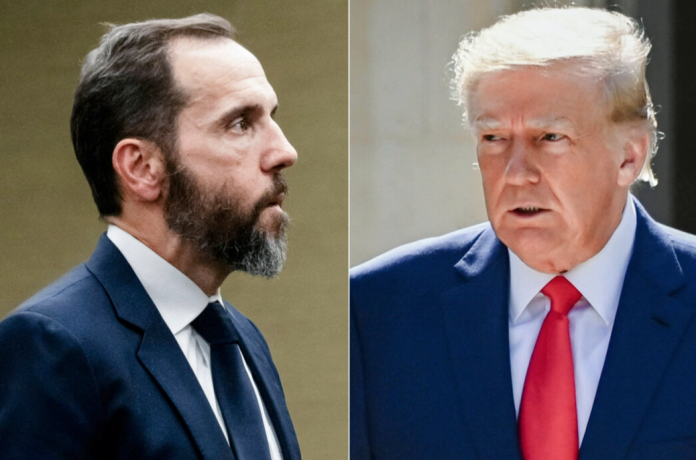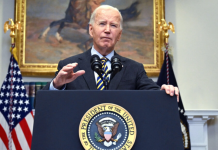Special counsel Jack Smith asked the U.S. Court of Appeals for the 11th Circuit to halt proceedings over President-elect Donald Trump’s classified documents case in Florida.
Noting Trump’s election, Smith’s Nov. 13 motion asked for the court to hold his appeal in abeyance and stay the deadline for his reply brief, due Nov. 15.
Smith has been pursuing an appeal over Judge Aileen Cannon’s decision to dismiss his prosecution. She held this summer that his appointment violated the Constitution.
Smith’s motion was made roughly a week after Trump’s victory in the 2024 presidential election. When asked about Trump’s criminal cases last week, a spokesman for the special counsel’s office pointed The Epoch Times to a 2000 memo in which the DOJ said prosecution of a sitting president violated the Constitution.
“The indictment or criminal prosecution of a sitting President would unconstitutionally undermine the capacity of the executive branch to perform its constitutionally assigned functions,” it reads.
Smith similarly cited DOJ policy last week when he requested that D.C. Judge Tanya Chutkan vacate the schedule in his prosecution against Trump in Washington. She quickly granted that motion on Nov. 8.
Smith’s move there and in the 11th Circuit spelled the end of the federal cases against Trump, who is set to be inaugurated in January 2025. Cannon’s decision also raised questions about the use of special counsels. Her opinion followed similar concerns from Supreme Court Justice Clarence Thomas’s concurrence in Trump v. United States, the decision on presidential immunity.
Both cases started last year and have resulted in appeals. The Supreme Court notably used Trump’s appeal in Washington to issue a landmark decision outlining different levels of criminal immunity for presidents.
Trump’s attorneys had cited that decision in their attempt to throw out the guilty verdict a jury delivered in New York state court. New York Justice Juan Merchan was expected to rule on Trump’s immunity arguments on Nov. 12 but has postponed the decision.
Experts told The Epoch Times that the Constitution would preclude the possibility of prison time for Trump in both of his state cases in New York and Georgia.
“The supremacy clause makes it clear that states cannot interfere with the president’s ability to conduct his job, and … the president can’t do what he has to do to run the country from prison,” Heritage Foundation Vice President John Malcolm told The Epoch Times on Nov. 6.
“The Secret Service would not be able to guarantee his safety in prison, so he is not going to see the inside of a jail cell even if the conviction is upheld.”
Former federal prosecutor Neama Rahmani questioned whether the supremacy clause would have that effect.
He nonetheless told The Epoch Times that it “wouldn’t be appropriate” to sentence Trump to prison given his lack of criminal history, noting that it was likely that Trump would be fined.
Smith’s motion in the 11th Circuit was made on the same day that Trump announced he had selected Rep. Matt Gaetz (R-Fla.) to serve as his attorney general, pending Senate confirmation.
Rahmani said that Merchan could also allow Trump to appeal the conviction but that those types of appeals were rare.
“It’s more likely that Trump is fined and sentenced to no time and he has to appeal the conviction,” he said. “This is all unprecedented and we’re in uncharted legal waters.”






















